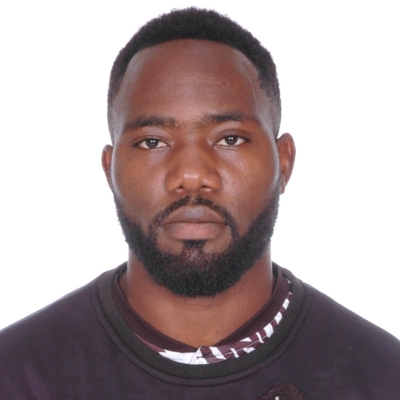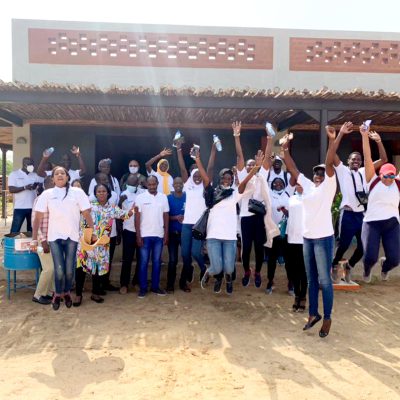
Policies of Senegal’s startup ecosystem
Policies in motion
To encourage entrepreneurship, SMEs and startups, a mix of recent policies has served as a platform for growth in various sectors of the economy. Interestingly, both numerous government policies as well as international development agencies and other international funding organizations have had an impact. While some of these policies were directly targeting startup growth, others aimed for more women inclusion, empowering micro-financial institutions, upgrading skills, mentoring, as well as legal support.
[Policy 1]: Senegalese Startup Act (Création et promotion de la startup -loi 2020-01)
The legislation, a landmark of its kind for the continent, contains a number of frameworks that aim to promote innovation and entrepreneurship in the national economy in accordance with the Senegal emergence plan (Le Plan Senegal Emergent, PSE) and the “Digital Senegal 2025” strategy (Senegal Numérique 2025).
Concretely, the Startup Act creates a specific support and framework for startups, as well as a suitable legal regime for the registration and labeling of Senegalese startups. It also creates a resource center dedicated to startups, and a package of incentive measures like low taxation for startups, access to mentorship, free training, and other growth measures.
[Policy 2] Creation of DER/FJ and BCE
The DER/FJ (La Délégation Générale à l’Entreprenariat Rapide des Femmes et des Jeunes), BCE (Bureau des Création d’entreprise or Bureau of Company Creation in English) and other state created organizations for startups, entrepreneurship, mentorship, funding, and women inclusion.
DER/FJ
The DER/FJ is a fund of 30 billion FCFA ($50 million USD) launched by the President of Senegal to catalyze entrepreneurship throughout the country . It targets both youth up to an age of 40 as well as all women 18 years and older. Additionally, the fund plays the role of an ecosystem builder. Not only a project funding source, the D-HUB is a program to build the ecosystem and boost entrepreneurship and innovation in Senegal .
Initially announced in September 2017 and formally launched in April 2018, the fund offers several main types of entrepreneur financing and support, such as incubation funding and training programs for young entrepreneurs and women, and equity financing and low-interest loans.
This bureau is responsible for facilitating the creation and registration of startups and SMEs in Senegal. They cover enterprises from a varied number of sectors, ranging from tourism, agriculture, ICT, to fintech. They don’t only limit their services to Senegalese entrepreneurs but also help facilitate the integration of foreign investors and entrepreneurs. Registration typically takes 1 to 2 days.
[Policy 3 ] Promoting the competitiveness and growth of small and medium-sized enterprises and capacity development in the microfinance sector
Initiated by the GIZ (The German Agency for International Cooperation) and executed by the Ministry of Economics and Finance between 2006 to 2015, the project’s key objective was to enable SMEs to become competitive and be able to operate in an environment that is conducive to growth through the availability of effective advisory services and an efficient microfinance sector.
The program has helped almost 3,500 SMEs improve their productivity and competitiveness. Furthermore, 38% of participating enterprises increased their turnover and 34% increased their profit.
[Policy 4] Project for support to skills development and youth entrepreneurship in Growth sectors (PDCGEJ)
This policy was co-financed through a loan from the African Development Bank and the Senegalese government with the goal to promote growth and employment by improving the quality of the workforce, competitiveness of local businesses, and youth entrepreneurship in several growth sectors. The policy aims to .foster the support of 250 local businesses and startups in energy (gas, solar, agribusiness), train more than 20,000 youths, of which at least 50% should be women in energy related fields/trades, provide skill training to more than 40,000 youths in their life project, facilitate the integration of 35,000 youths, and incubate more than 3000 youths and women – generating more than 700 startups and offering at least 1000 jobs .

impact
Through the government’s implementation of the above policies, there have been visible boosts to the startup scene, business registration period, financial support, youth and women entrepreneurship, and the general legal framework. Despite some general national efforts in policy implementation, it can be felt that some cities have a set of specific policies for specific needs. Dakar for instance has a better Startup Scene and Finance of 32.28 and 22.46 respectively, ranking higher than other cities like Saint-Louis for instance (28.25 and 17.85). This is due to a larger number of hubs, accelerators, and technoparks in Dakar than in any other city. Saint-Louis has focused on Human Capital and Utilities scoring 54.62 and 68.46 respectively. Thiès has implemented strong policies to strengthen its industrial hub and provide clean and efficient energy, scoring 97.22 on Electricity Outages specifically and 67.61 on Utilities.
On the other hand, foreign aid from international organizations like the African Development Bank and GIZ have focused on improving microfinance and empowering local youth and women entrepreneurs, local SMEs and startups with training, incubation programs and professional insertion.
While all these efforts continue to make an impact, the country could use some new policies to both reduce the level of pollution and improve its Human Capital, for example through educational reforms.




